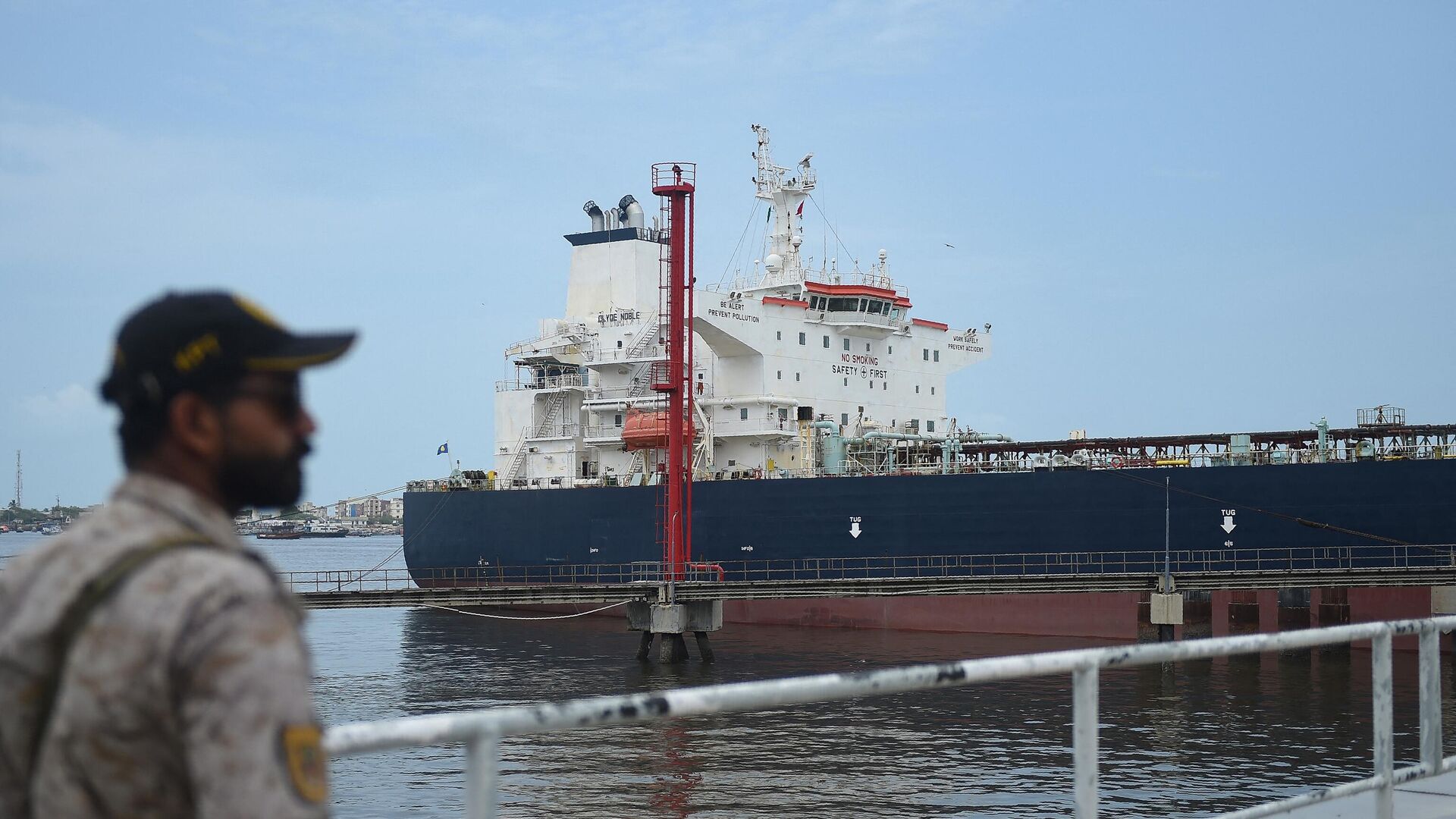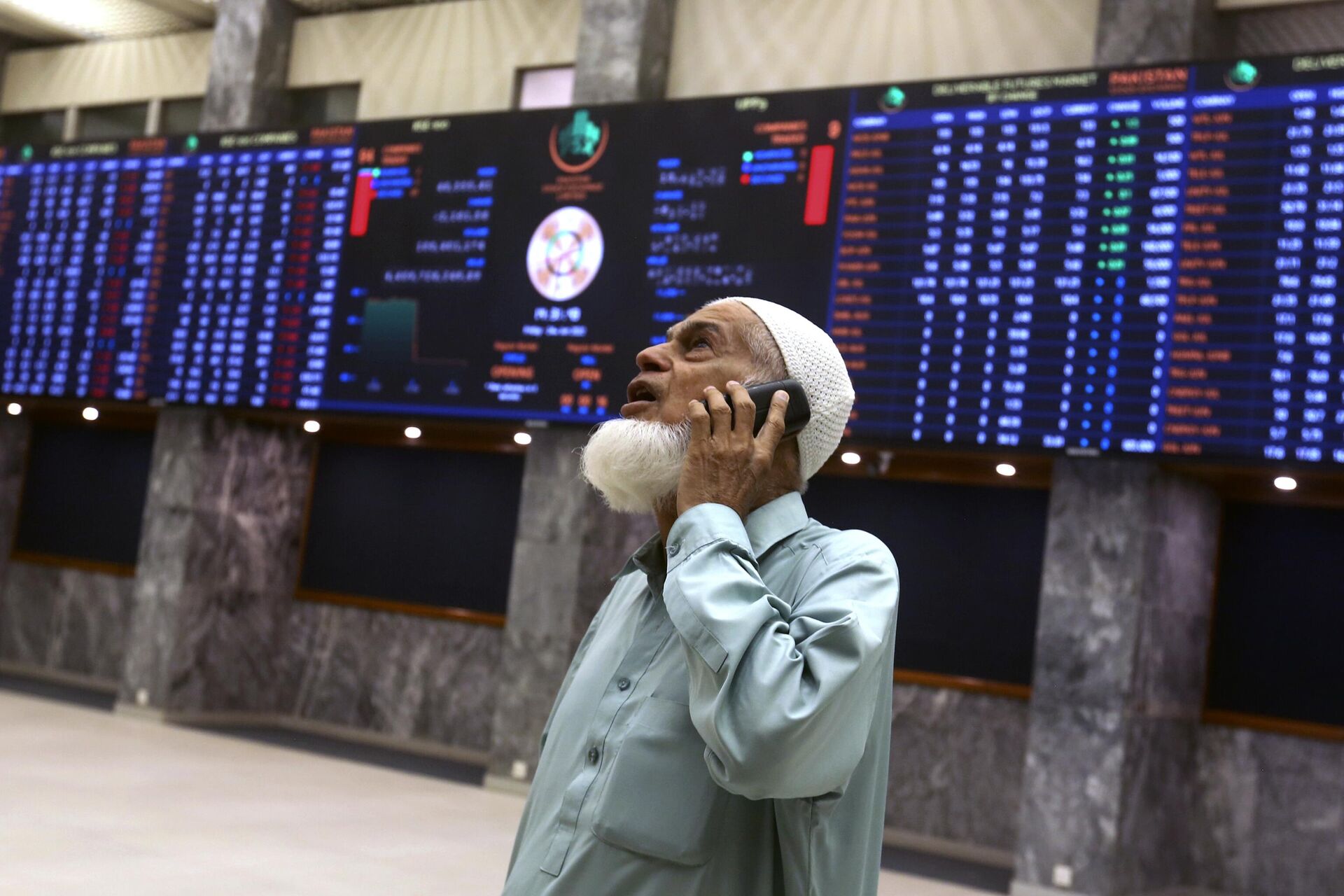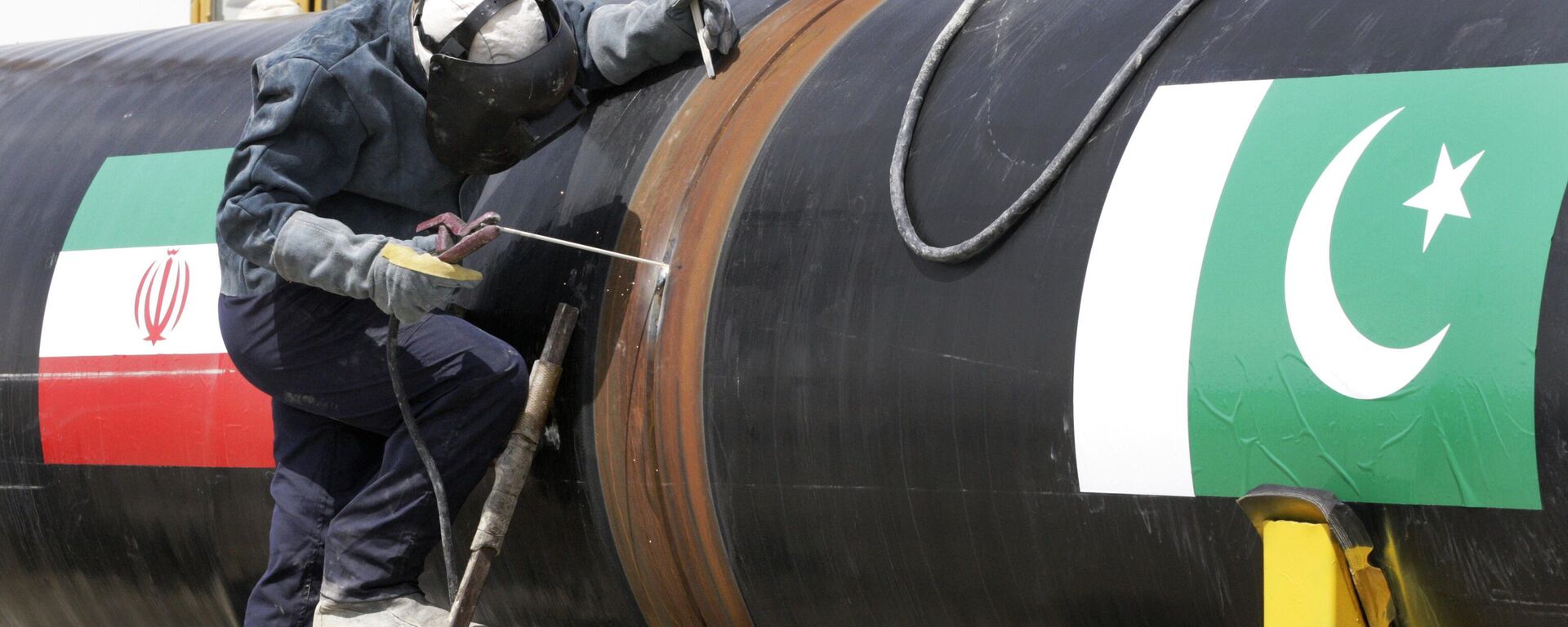https://sputniknews.in/20240417/can-crude-oil-and-gas-imports-salvage-pakistans-shrinking-economy-7149107.html
Can Crude Oil and Gas Imports Salvage Pakistan's Shrinking Economy?
Can Crude Oil and Gas Imports Salvage Pakistan's Shrinking Economy?
Sputnik India
Pakistan is currently dealing with a surge in commodity prices, which threatens to lead to yet another round of inflation. As households are already struggling with decreasing real incomes and purchasing power, the situation is becoming increasingly dire. At the same time, industries are struggling to stay afloat amid rising electricity costs.
2024-04-17T14:49+0530
2024-04-17T14:49+0530
2024-04-17T14:49+0530
imran khan
pakistan
russia
india
economic crisis
political crisis
oil exporters
global oil production
oil supplies
russian oil price cap
https://cdn1.img.sputniknews.in/img/07e7/0c/14/5897290_0:0:3072:1728_1920x0_80_0_0_f269e42424946f80cc9a5411d8a00ae3.jpg
In the past two years, Pakistan has experienced inflation rates exceeding 20% on a year-on-year basis, resulting in a range of significant issues. These issues include a decline in demand for goods, a reduction in the purchasing power of the general population, and economic stagnation.According to data released by the Pakistan Bureau of Statistics (PBS) the big industry production has contracted significantly over the last two years, which in turn led to mass layoffs pushing the level of unemployment to a record high.Economists at PBS have been voicing their concerns about a slowdown in big industry production caused by various factors, including record energy and raw material prices internationally, along with restrictions on imports.Sputnik India discussed the matter with a Lahore-based business owner and financial analyst, Arsalan Khan, who said that export-based manufacturers like himself have been actively voicing concerns over the decline in industry production due to rising energy costs because of the discontinuation of subsidized electricity.Surging Electricity Bills Compel Industries to Cut ProductionHe added that the auto sector also saw a 30% slump in 2023 as the production of almost all kinds of vehicles went down, except for buses and diesel engines.According to recent surveys, the Large Scale Manufacturing Index (LSM) in March 2024 remains lower than its peak of March 2022, suggesting that over the last two years, manufacturing has remained well below earlier peaks and even below optimal levels.In another setback for electricity consumers already facing financial difficulties, the Central Power Purchasing Agency (CPPA) of Pakistan proposed a significant increase of Rs7.13 per unit in fuel charges for the February billing cycle, reflecting electricity consumption in January. This increase can be attributed to the rise in domestic coal and gas prices, despite the fact that imported fuel prices such as furnace oil and LNG were lower in January, while the exchange rate remained stable.Untapped Potential and Misplaced OpportunitiesHence, it seems like Pakistan is in dire need of energy: crude oil and gas to power its industries and generate more electricity."But since then, the project seems to have stopped. Why? Not much is known but some feel the power brokers in Rawalpindi do not want to upset Washington, which as we know tries to control Pakistan, hence the silence," Shikari added.According to the attache, Pakistan is seemingly holding off on benefitting from Russian oil price caps, unlike other Asian countries, due to supposed pressure from the US, but that is negatively affecting Pakistan's internal situation.Similar situation is seen with the Iran-Pakistan gas pipeline which has been in the works for a decade. Despite Pakistan's desire to commence the construction of the Iran-Pakistan gas pipeline, progress has been stalled once again due to US pressure. It is unfortunate that both the crude oil and gas pipeline projects, which could have potentially helped alleviate Pakistan's energy shortages at a reasonable cost, have not seen any actual results.Hence, the near-term risks to inflation remain high in Pakistan and a sustained surge in commodity prices can lead to a series of events that can fuel another round of economic instability.
https://sputniknews.in/20240131/which-countries-try-to-scuttle-iran-pakistan-ties-and-why-6392538.html
pakistan
russia
india
iran
Sputnik India
feedback.hindi@sputniknews.com
+74956456601
MIA „Rossiya Segodnya“
2024
Aneela Rashid
https://cdn1.img.sputniknews.in/img/07e6/0c/0d/74548_0:0:485:484_100x100_80_0_0_821526e967ae85d041e2d30ee34fa1de.jpg
Aneela Rashid
https://cdn1.img.sputniknews.in/img/07e6/0c/0d/74548_0:0:485:484_100x100_80_0_0_821526e967ae85d041e2d30ee34fa1de.jpg
News
en_IN
Sputnik India
feedback.hindi@sputniknews.com
+74956456601
MIA „Rossiya Segodnya“
Sputnik India
feedback.hindi@sputniknews.com
+74956456601
MIA „Rossiya Segodnya“
Aneela Rashid
https://cdn1.img.sputniknews.in/img/07e6/0c/0d/74548_0:0:485:484_100x100_80_0_0_821526e967ae85d041e2d30ee34fa1de.jpg
imran khan, pakistan, russia, india, economic crisis, political crisis, oil exporters, global oil production, oil supplies, russian oil price cap, gas exports, gas pipeline, iran, shehbaz sharif, inflation
imran khan, pakistan, russia, india, economic crisis, political crisis, oil exporters, global oil production, oil supplies, russian oil price cap, gas exports, gas pipeline, iran, shehbaz sharif, inflation
Can Crude Oil and Gas Imports Salvage Pakistan's Shrinking Economy?
Pakistan is currently dealing with a surge in commodity prices, which threatens to lead to yet another round of inflation. As households are already struggling with decreasing real incomes and purchasing power, the situation is becoming increasingly dire. At the same time, industries are struggling to stay afloat amid rising electricity costs.
In the past two years,
Pakistan has experienced inflation rates exceeding 20% on a year-on-year basis, resulting in a range of significant issues. These issues include a decline in demand for goods, a reduction in the purchasing power of the general population, and
economic stagnation.According to data released by the
Pakistan Bureau of Statistics (PBS) the big industry production has contracted significantly over the last two years, which in turn led to mass layoffs pushing the level of unemployment to a record high.
Economists at PBS have been voicing their concerns about a
slowdown in big industry production caused by various factors, including record energy and raw material prices internationally, along with
restrictions on imports.
Sputnik India discussed the matter with a Lahore-based business owner and financial analyst, Arsalan Khan, who said that export-based manufacturers like himself have been actively voicing concerns over the decline in industry production due to rising energy costs because of the discontinuation of subsidized electricity.
Surging Electricity Bills Compel Industries to Cut Production
"Last year, every industry across Pakistan saw its production shrink. Production in the textile sector shrank by 13%. In the food group, wheat and rice production fell by 12% and tea by 13%," the businessman explained.
He added that the auto sector also saw a 30% slump in 2023 as the production of almost all kinds of vehicles went down, except for buses and diesel engines.
According to recent surveys, the Large Scale Manufacturing Index (LSM) in March 2024 remains lower than its peak of March 2022, suggesting that over the last two years, manufacturing has remained well below earlier peaks and even below optimal levels.
"I think the main reason why the situation is not getting better is the increase in electricity prices which continues to push per capita electricity consumption as industries try to move off the grid, while households are severely constrained by their budgets," Khan said.
In another setback for electricity consumers already facing financial difficulties, the Central Power Purchasing Agency (CPPA) of Pakistan proposed a significant increase of Rs7.13 per unit in fuel charges for the February billing cycle, reflecting electricity consumption in January.
This increase can be attributed to the rise in domestic coal and gas prices, despite the fact that imported fuel prices such as furnace oil and LNG were lower in January, while the exchange rate remained stable.
Untapped Potential and Misplaced Opportunities
Pakistan has access to some of the cheapest hydropower and solar resources. However, using these will require investment which will only come if long-standing issues in the distribution and transmission systems are addressed, mainly through more private participation.
Hence, it seems like Pakistan is in dire need of energy: crude oil and gas to power its industries and generate more electricity.
"After Imran Khan's PTI government was toppled in 2022 it seemed that the decision to import crude oil at a discounted price from Russia was gone. But at that time the Pakistan Democratic Movement (PDM) government under Shahbaz Sharif went ahead with the project and a few containers of Russian crude were imported. Many called it the start of a new chapter between the two nations," former Defense Attache in Pakistan's Foreign Service, Khalid Shikari, told Sputnik India.
"But since then, the project seems to have stopped. Why? Not much is known but some feel the power brokers in Rawalpindi do not want to upset Washington, which as we know tries to control Pakistan, hence the silence," Shikari added.
According to the attache, Pakistan is seemingly holding off on benefitting from Russian oil price caps, unlike other Asian countries, due to supposed pressure from the US, but that is negatively affecting Pakistan's internal situation.
Similar situation is seen with the Iran-Pakistan gas pipeline which has been in the works for a decade. Despite Pakistan's desire to commence the construction of the
Iran-Pakistan gas pipeline, progress has been stalled once again due to US pressure. It is unfortunate that both the crude oil and gas pipeline projects, which could have potentially helped alleviate Pakistan's energy shortages at a reasonable cost, have not seen any
actual results."Now the rise in international commodity prices will have a negative impact on Pakistan’s economy, given its high dependence on imports of crude oil and palm oil and constrained foreign currency reserves. Any increase in commodity prices over the next few months can trigger inflation, leading to a serious spiral of price increases for the masses," the defense attache stated.
Hence, the near-term risks to inflation remain high in Pakistan and a sustained surge in commodity prices can lead to a series of events that can fuel another round of economic instability.




